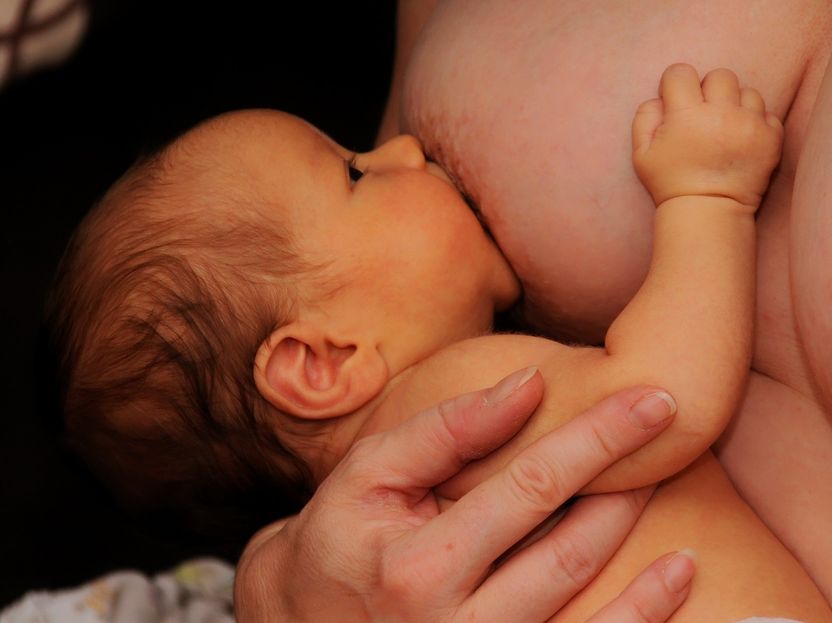Breastfeeding protects against diabetes for up to 15 years after
Breastfeeding alters maternal metabolism
An interdisciplinary team of scientists at the Helmholtz Zentrum München has studied the metabolism of women with gestational diabetes after giving birth. Along with partners at the Technical University of Munich (TUM) and the German Center for Diabetes Research (DZD), they were able to show that breastfeeding for more than three months brings about long-term metabolic changes.

WerbeFabrik, pixabay.com, CC0
Four percent of all pregnant women in Germany develop gestational diabetes before the birth of their child. Although their blood sugar levels initially return to normal after delivery, one in two of the mothers affected develops type 2 diabetes within the next ten years. While it has been shown that lactation can lower this risk by 40 percent, the reasons for this are not yet understood.
In an earlier study, researchers led by Professor Anette-Gabriele Ziegler, Director of the Institute of Diabetes Research (IDF) at the Helmholtz Zentrum München, showed that breastfeeding for more than three months postpartum has a protective effect, which lasts for up to 15 years after gestational diabetes. In their most recent study, they examined whether the metabolism could be responsible for this.
For their analyses, the scientists examined almost 200 patients who had developed gestational diabetes. The participants in the study received a standardized glucose solution and gave a fasting blood sample beforehand, and during the test. The scientists then compared the samples on the basis of 156 different, known metabolites. On average, the women had given birth three and half years earlier.
“We observed that the metabolites in women who had breastfed for more than three months differed significantly from those who had had shorter lactation periods,” first-author Dr. Daniela Much from the IDF reports. “Longer periods of lactation are linked to a change in the production of phospholipids and to lower concentrations of branched-chain amino acids in the mothers’ blood plasma.” This is interesting because the metabolites involved were linked in earlier studies with insulin resistance and type 2 diabetes, the authors say.
“The findings of our study provide new insights into disease-related metabolic pathways that are influenced by lactation and could thus be the underlying reason for the protective effect,” concludes Dr. Sandra Hummel, head of the Gestational Diabetes working group at the IDF, who led the study. Breastfeeding, she explains, is a cost-effective intervention which aims to reduce the long-term risk of developing type 2 diabetes among women with gestational diabetes.
In the future, the scientists will look at ways of translating this knowledge into concrete treatment recommendations. “On average, women with gestational diabetes breastfeed less often and for shorter duration than non-diabetic mothers,” Hummel says. “The aim is now to develop strategies that will improve the breastfeeding behaviors of mothers with gestational diabetes.”

















































